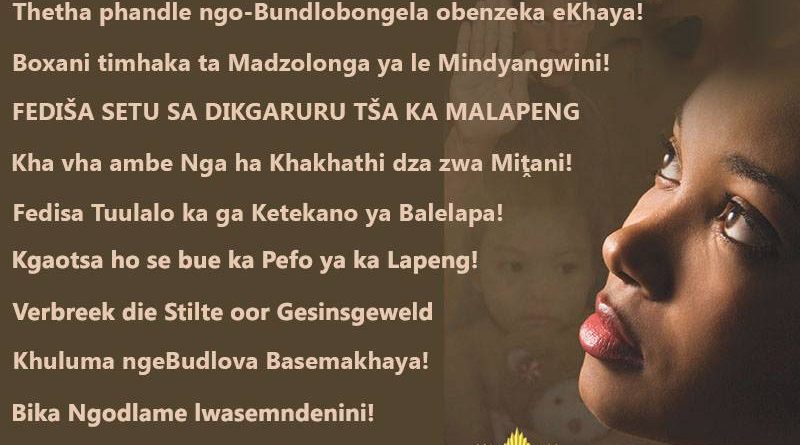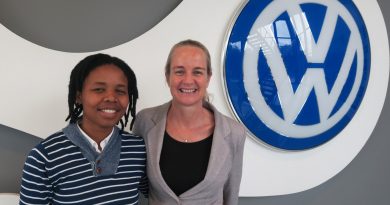South Africans are firmly against sexual violence, but gender stereotyping is hardening
“10 yrs later….”, “Khanga”, “Remember Kwezi” and “I am one in 3”: the silent protest of four young women at Pres. Zuma’s speech at the Election Results Operations Centre in Pretoria brought the issue of sexual violence against women into sharp focus on the eve of Women’s Day 2016.
Although a firm majority of 58% “strongly” agreed, overall 8% of adults in South Africa either “strongly disagree” or “disagree” with the statement:
“It is always wrong to have sex with someone against his/her will”.
Thus, almost one in every ten South Africans believes that forced intercourse is appropriate in certain situations. There is no difference between the views of males and females on this controversial issue, however, young people (15-17 years old) expressed themselves as especially strongly opposed to forced intercourse:
| It is always wrong to have sex with someone against his/her will[1] | Strongly Agree / Agree
% |
Disagree / Strongly Disagree
% |
| 15-17 years | 90 | 2 |
| 18-24 years | 81 | 7 |
| 25-34 years | 79 | 9 |
| 35-49 years | 80 | 9 |
| 50+ years | 82 | 8 |
An average of 73% of South Africans (females and males and all age groups) agreed that “The names of rapists should be published in a register open to the public” affirming the public’s strong opposition to sexual violence. These findings are according to the latest Pulse of the People™ study undertaken by Ipsos in June and July 2016. (See Technical Detail for more information.)
According to United Nations (UN) statistics, approximately 1 in every 3 women (35%) worldwide experiences physical violence and/or sexual violence at some point in her life. Around the globe, approximately 120 million girls experience forced intercourse or other forms of forced sexual acts at some point. Against this background South Africa is thus not unique when it comes to the sexual abuse of women (and children).
To bring things a bit closer to home, respondents were asked how well our government is handling violence against women and children. Only about four in every ten (38%) adults say that the government is handling this issue “very well” or “fairly well”. In 2015 this proportion stood at 44% – thus satisfaction with the situation is on the decline. Again, as in the past, there is not much of a difference between the views of women (37% say the government is handling this issue well) and men (40%). This year only 14% (women and men) are of the opinion that the government is handling violence against women and children “very well”.
More, rather than less, inequality in our society
With almost a third (30%) of South African adults saying that “a woman’s place is in the house” – up from 24% in 2015 – it is clear that we are very far from achieving the equality specified in our Constitution. Men (34%) feel stronger about this than women (27%). However, it is not necessarily older people (like one would conventionally believe) who feel the strongest about this, but rather those in the 35-49 age group where 32% agreed with the statement.
Could it be that this opinion is driven by possible competition for job opportunities? With 31% of this age group (35-49) agreeing with the statement “When jobs are scarce, men should have more rights to jobs than women”, it is a possibility. (Overall 30% of South African adults share this view.)
Looking at some other findings, it is clear that there is a deep-seated and growing issue in our rather unequal society about the abilities of women – this is reflected in opinions about education for girls and also about women’s abilities as political leaders. As can be seen below, in a lot of cases women themselves do not have a lot of trust in their own abilities! “The active promotion of gender equality can be one of the most important building blocks in uniting South African men and women of all population groups,” says Mari Harris, Ipsos South Africa Director of Public Affairs.
|
% Strongly Agree/Agree |
All Adults
2015 % |
All Adults 2016
% |
Women
2016 % |
Men
2016 % |
Blacks
2016 % |
Whites
2016 % |
Coloureds
2016 % |
Indians
2016 % |
| South African women should be kept in their place | 33 | 40 | 38 | 42 | 45 | 22 | 28 | 13 |
| Men make better political leaders than women do | 36 | 33 | 28 | 38 | 37 | 18 | 21 | 11 |
| When jobs are scarce, men should have more rights to jobs than women | 28 | 30 | 25 | 34 | 32 | 18 | 30 | 15 |
| A boy has more rights to education than a girl | 21 | 25 | 23 | 26 | 27 | 16 | 20 | 10 |
Technical detail
A total of 3,861 personal face-to-face interviews were conducted with randomly selected adult South Africans. The interviews were done in the homes and home languages of respondents. Trained quantitative fieldworkers from all population groups were responsible for the interviewing, which took place from 17 June to 18 July 2016. Interviews were done all over the country, from metropolitan areas to deep rural areas. This methodology ensured that the results are representative of the views of the universe and that findings can be weighted and projected to the universe – i.e. South Africans 15 years and older.
Interviews were conducted using CAPI (Computer Assisted Personal Interviewing) and all results were collated and analysed in an aggregate format to protect the identity and confidentiality of respondents.
All sample surveys are subject to a margin of error, determined by sample size, sampling methodology and response rate. The margin of error for the sample as a whole at a 95% confidence level is between 0.7% to 1.6%.
Reference:
[1] It is important to keep in mind that the Ipsos questionnaire did not specify a particular gender in this question.




